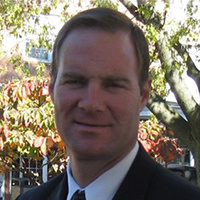Allenport Juvenile Law Lawyer, Pennsylvania
Sponsored Law Firm
-
 x
x

Click For More Info:
-
Sean Logue & Associates
429 4th Ave. Suite 1601 Pittsburgh, PA 15219 » view mapDUI, Sex Crimes, Drug Crimes, Expungements Phones Answered 24 Hours A Day
Our lawyers bring a thorough understanding of criminal issues to help minimize the damage that a DUI charge can bring to our clients.
412-389-0805  Sean Logue Pittsburgh, PA
Sean Logue Pittsburgh, PAAttorney At Law - Pennsylvania, 2008
West Virginia, J.D. - 2007
 Google+
Google+Visit us and follow on Google+ to interact on social media.
 Contact UsEmail or Call 24/7
Contact UsEmail or Call 24/7Free initial consultation. Contact us today.
Corey J. Riddell
✓ VERIFIEDCriminal, Juvenile Law, Traffic, Estate
In 1988, Corey J Riddell received his B.A. in Political Science from Slippery Rock University and J.D. from Ohio Northern University Pettit College of... (more)
Gayle R. Kraut
Juvenile Law, Estate Planning, Family Law, Criminal
Status: In Good Standing Licensed: 24 Years
Bradley S. Tupi
Juvenile Law, Real Estate Other, Motor Vehicle, Lawsuit & Dispute
Status: In Good Standing Licensed: 46 Years
Glenn Alterio
Defense Contracts, Juvenile Law, Criminal, Wrongful Death
Status: In Good Standing Licensed: 41 Years
M. Scott Zegeer
Juvenile Law, Income Tax, Land Use & Zoning, Trusts
Status: In Good Standing Licensed: 39 Years
Charles Edward Bobinis
Juvenile Law, Real Estate, Traffic, Criminal
Status: Deceased Licensed: 45 Years
Eric D. Hoffman
Juvenile Law, White Collar Crime, Criminal, Wrongful Death
Status: In Good Standing Licensed: 23 Years
Renee Virginia Anderson
Juvenile Law, Real Estate, Motor Vehicle, Lawsuit & Dispute
Status: In Good Standing Licensed: 20 Years
Angela Railsback
Juvenile Law, Other, Lawsuit & Dispute, Family Law
Status: In Good Standing Licensed: 24 Years


 Sean Logue Pittsburgh, PA
Sean Logue Pittsburgh, PA Contact UsEmail or Call 24/7
Contact UsEmail or Call 24/7

